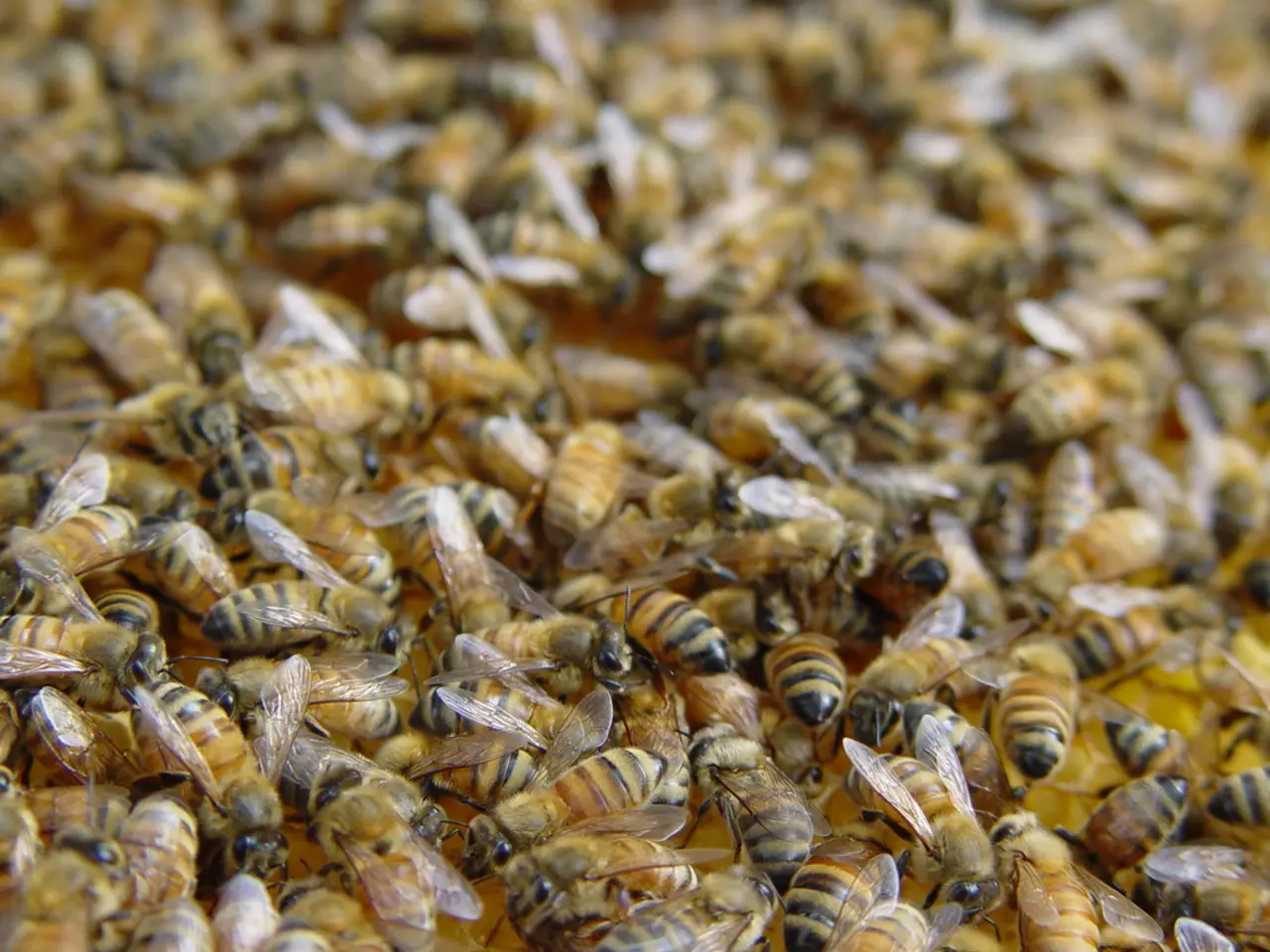Member States' actions assessed and reported to the Commission.
In the district of Harburg, Germany, a serious and contagious disease affecting honeybee brood, known as American Foulbrood (AFB), has been detected in two bee colonies in the municipality of Tostedt this year.
To prevent the spread of AFB, which is caused by the bacterium Paenibacillus larvae, strict regulatory measures have been put in place by federal and state veterinary authorities. These measures include:
- Mandatory reporting of suspected cases by beekeepers to local veterinary or agricultural authorities.
- Inspection and monitoring of apiaries in the region following suspected or confirmed outbreaks.
- Destruction or burning of infected colonies and equipment to prevent the spread.
- Restriction of movement of bees, hive products, and equipment from infected areas.
- Disinfection protocols for equipment and apiary sites.
- Surveillance zones around infected apiaries where increased monitoring occurs.
- Potential compensation schemes for affected beekeepers depending on state regulations.
A restricted zone with a radius of two kilometers has been established around each affected colony. This zone prohibits the movement of individual bees or entire bee colonies, as well as the removal of bee colonies, individual bees, combs, or related materials from the beehives within the restricted zone. Additionally, the movement of mobile beehives is prohibited within these zones.
The purpose of these restrictions is to prevent the spread of AFB. The first case of AFB in the district of Harburg this year, as well as the second case detected in May, have both occurred in Tostedt.
Germany maintains a strong surveillance and control system for AFB, and systematic regulations under the EU Animal Health Law. Harburg district beekeepers often collaborate with beekeeping associations and veterinary officials to minimise disease risks. New detection methods, including regular inspections and sometimes molecular diagnostics, have been increasingly adopted.
For the most current or detailed outbreak data, contacting the Lower Saxony regional veterinary authority or the local beekeeping associations could provide authoritative and up-to-date information. Beekeepers in Harburg are encouraged to participate in educational programs and vigilance campaigns for early detection.
Despite these measures, AFB cases occur sporadically with occasional clusters in Germany, including Harburg. However, with swift action to eradicate infected colonies and increased vigilance, the spread of the disease can be effectively managed.
- To aid in the management of AFB and other medical-conditions that may affect bee colonies, beekeepers in Harburg district are encouraged to collaborate with environmental-science experts and local veterinary authorities, as new research and detection methods are paramount in the health-and-wellness of their hives.
- Given the detected cases of AFB in Tostedt this year, other beekeepers in the Harburg district should be vigilant, ensuring they adhere to strict regulations in health-and-wellness practices, such as the mandatory reporting of suspected cases, regular inspections, and the implementation of disinfection protocols, as outlined in the practices for other science disciplines, including environmental-science and medical-conditions management.




